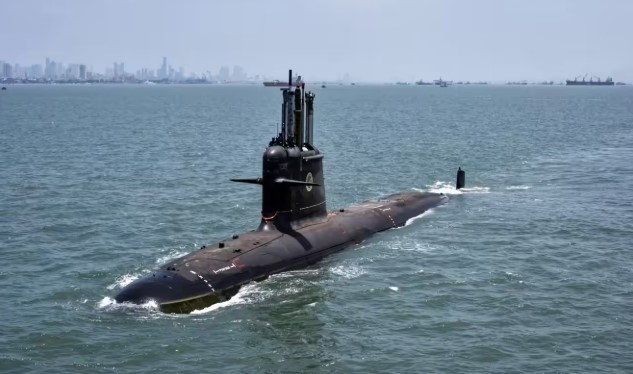In 2021, Australia, the United Kingdom, and the United States formed a trilateral security pact called Aukus. Under the Aukus submarine deal, Australia would receive three to five nuclear-powered Virginia-class submarines from the US starting in 2032.
The Costly Aukus Submarine Deal and Growing Doubts
Australia would also work with the UK to build a new class of submarine by the early 2040s. The Australian government at the time described the Aukus submarine deal as a “historic opportunity” to strengthen security in the Indo-Pacific region.
However, many experts and former officials in Australia have raised serious concerns. Former Prime Minister Paul Keating strongly criticized the deal, calling it “the worst deal in all history” and “irrational in every dimension.” He wasn’t alone. Gareth Evans, a former Australian foreign minister, warned that Australia’s “no-holds-barred embrace” of Aukus put the nation’s independence “at profound risk.” Bob Carr, another former foreign minister, also expressed doubts about whether the submarines would ever be delivered.
Now, the deal is being reviewed by the US Department of Defense, under the Trump administration’s 30-day policy reassessment. The review is led by Elbridge Colby, a well-known sceptic of the Aukus deal. This review could lead to the agreement being scrapped altogether.
Delays and Design Flaws in the Aukus Submarine Deal
The Aukus submarine deal comes with an enormous price tag—$239 billion. Australia previously had a cheaper deal with France for 12 conventional submarines. That deal was cancelled in favor of Aukus, which left France upset and calling the move a “stab in the back.” While the French deal had delays, the Aukus submarine deal timeline is far longer. Delivery is expected to begin in 2032, with full capability only in the 2040s.
Australia’s $368B Submarine Deal in Crisis — Can Musk Fix America’s Broken Shipyards?
Critics point out that such a long wait weakens Australia’s defense planning. “You’d better be careful with us, we’ve got some top-grade submarines coming in, er, nearly 10 to 20 years,” one expert jokingly remarked, highlighting how this timeline is not a real deterrent.
Additionally, the Virginia-class submarines are large and designed for deep water operations, mainly in the Western Pacific near China. They may not be suitable for Australia’s shallow coastal waters. Former PM Paul Keating noted that these submarines were clearly built for US interests in the region, not for Australia’s unique needs.
There’s also a legal hurdle. Before transferring any submarines, the US president must certify that doing so won’t harm America’s own naval strength. This condition makes delivery less certain. Elbridge Colby has raised doubts on this issue. He is also expected to ensure that the deal aligns with the “America First” policy, which puts US interests above all else.
Strategic Concerns and Loss of Sovereignty
There are worries that the Aukus deal may reduce Australia’s control over its military operations. The submarines would require constant coordination with the US Navy, making Australia dependent on American defense systems. Many fear this undermines national sovereignty.
Paul Keating warned that Australia would be tying itself “unambiguously” to the US’s most aggressive stance on China. Gareth Evans echoed this, suggesting the deal might be one of Australia’s worst foreign policy decisions ever.
Bob Carr stated in March that the US is not building enough submarines even for its own needs. Therefore, it’s unlikely that Australia will actually receive any submarines in the early 2030s. This adds to the uncertainty.
AUKUS in Peril: US Struggles to Deliver 41st Virginia-Class Submarine Amid $3.2B Crisis
The “America First” approach has already caused concerns in other regions. For example, past US actions in the Middle East have shown that Washington is willing to act alone, even if it means breaking international laws or agreements. This makes other countries nervous about depending too much on the US.
If the Aukus Submarine deal collapses, it could force countries like Australia to rethink their defense strategies and alliances. For now, the possibility of walking away from the agreement is being seriously considered in both Washington and Canberra. Many believe that stepping back from Aukus could actually be a blessing in disguise for Australia.

